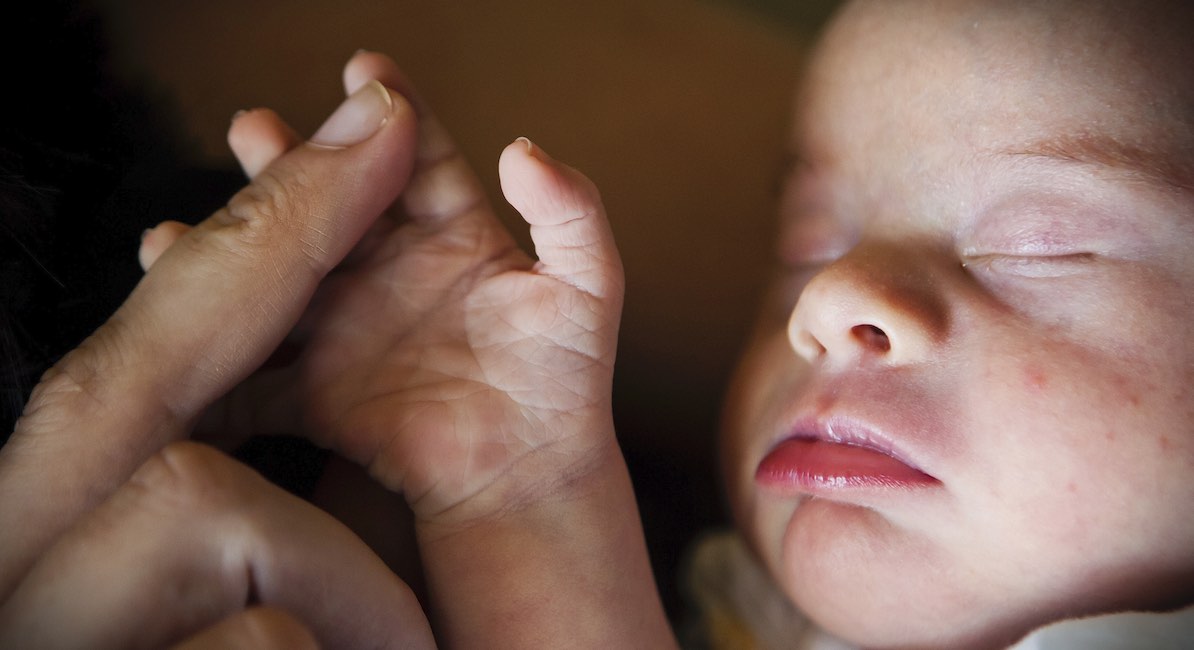According to a January 2021 Knights of Columbus/Marist Poll, the majority of Americans oppose abortion for a prenatal diagnosis such as Down syndrome. Overall, 70% of Americans — 56% of those who consider themselves pro-choice and 88% of those who consider themselves pro-life — are against abortion due to a Down syndrome diagnosis. Despite this, abortion proponents continue to push fetal diagnosis as a major reason to keep abortion legal.
Prenatal Screening
Advances in prenatal screening have made it easier (though not entirely accurate) to determine if a preborn child has a genetic condition such as Down syndrome, Trisomy 18, or cystic fibrosis, or a health issue such as spina bifida or brittle bone disease.
“Medically speaking, it can be very difficult to confidently predict the long-term outcomes of many conditions diagnosed in utero,” explained neonatologist Dr. Kendra Kolb in a video for Live Action.
Rather than use this testing to help parents prepare for raising their child, doctors are using prenatal screening as a weapon in a search-and-destroy mission against children who are considered imperfect. Targeting certain human beings for death because of a disability is a form of eugenics.
Though most Americans don’t support this, nine percent of those who call themselves pro-life and 35% of pro-choicers do support abortion for this discriminatory reason. It has gotten to the point that parents of babies with a prenatal diagnosis regularly face heavy pressure from doctors to abort their babies as an act of “compassion.”
Killing is not compassionate
Some doctors, fearful of the new trend in wrongful birth lawsuits, try to convince parents to abort due to a poor prenatal diagnosis. Parents have reported that doctors have listed all of the negatives associated with certain health conditions and offered them little hope — but OB/GYNs are not specialists or experts in the health conditions children face. They are in no way equipped to give parents the most up-to-date information concerning every single health condition.
Children diagnosed with Trisomy 18, for example, are often written-off by doctors who are unaware or unwilling to secure adequate health care for them, even though children with Trisomy 18 are able to survive outside the womb when proper care is provided. However, many doctors enact what is known as “slow code,” allowing these children to die slowly due to a refusal to provide them with care. Children like Faith prove that life with Trisomy 18 is not only possible, but good. Targeting her or any preborn child with any health condition for abortion because of potential future challenges is discriminatory and inhumane. Killing is not compassion. Compassion compels people to help other human beings to live the best and longest life possible.
READ: Women pregnant from rape: Don’t use us as an ‘argument for abortion’
Rather than killing children because of a disability, doctors should be aiding parents in accessing resources to help their children live and to help their entire family. If a child’s chance of survival is very small, the parents deserve access to neonatal palliative care, which offers compassionate medical care for terminally ill babies to alleviate pain and discomfort, as well as assistance with other resources. One such resource is Be Not Afraid. When parents learn that their newborn has just months to live, they are not expected to kill their child to avoid suffering. Rather, plans are put in place to ensure that the child is comfortable and treatments are provided in hopes of saving the child’s life. That same level of care should be provided to preborn children, too.
Abortion hurts parents
When parents abort because of a prenatal diagnosis, their babies aren’t the only ones who suffer. A study from Duke University found that women who abort after a prenatal diagnosis deemed “incompatible with life” report “significantly more despair, avoidance, and depression than women who continued the pregnancy.” The same study showed that women who carry their babies to term report feeling more emotionally prepared for their child’s death and have a sense of gratitude and peace surrounding their child’s life.
This study supports previous findings from 2009 that found nearly 17% of women who aborted a “wanted” baby because of a prenatal diagnosis were later diagnosed with a psychiatric disorder (such as post-traumatic stress, anxiety, or depression) within 14 months of the abortion. Despite what abortion proponents claim about the necessity of abortion for parents facing a prenatal diagnosis, women who go through with such abortions are proving that not only is it unnecessary, it’s incredibly harmful. It cruelly pits parents against children and forces parents to decide whether or not to kill their own children.
The rush to abort
Sadly, despite the eugenic aspect of abortion for prenatal diagnosis and abortion’s detrimental effects on women, parents who are given a poor diagnosis for their baby are usually encouraged to abort as quickly as possible. One study found that most abortions due to a fetal diagnosis occur within 72 hours of the parents’ receipt of the test results. That’s just three days, and in some cases, further testing should have been done to determine with certainty if the baby did have the condition she was suspected of having. Many tests have error margins or only tell of a child’s risk of having a condition, not that she actually has it.
Advances in science have given us the ability to provide quality care to children and their parents and these families deserve the right to love their children for as long as their children survive. Each moment of life from fertilization to natural death has a purpose and meaning.
“Like” Live Action News on Facebook for more pro-life news and commentary!







